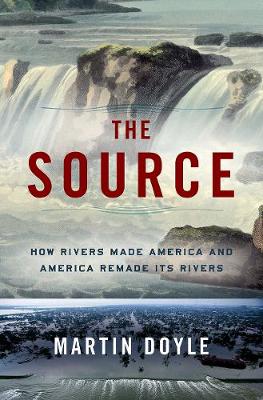America has more than 250,000 rivers, coursing over more than 3 million miles, connecting the disparate regions of the United States. On a map they can look like the veins, arteries, and capillaries of a continent-wide circulatory system, and in a way they are. Over the course of this nation's history rivers have served as integral trade routes, borders, passageways, sewers, and sinks. Over the years, based on our shifting needs and values, we have harnessed their power with waterwheels and dams, straightened them for ships, drained them with irrigation canals, set them on fire, and even attempted to restore them.
In this fresh and powerful work of environmental history, Martin Doyle tells the epic story of America and its rivers, from the U.S. Constitution's roots in interstate river navigation, the origins of the Army Corps of Engineers, the discovery of gold in 1848, and the construction of the Hoover Dam and the TVA during the New Deal, to the failure of the levees in Hurricane Katrina and the water wars in the west. Along the way, he explores how rivers have often been the source of arguments at the heart of the American experiment-over federalism, sovereignty and property rights, taxation, regulation, conservation, and development.
Through his encounters with experts all over the country-a Mississippi River tugboat captain, an Erie Canal lock operator, a dendrochronologist who can predict the future based on the story trees tell about the past, a western rancher fighting for water rights-Doyle reveals the central role rivers have played in American history-and how vital they are to its future.
- ISBN10 0393242358
- ISBN13 9780393242355
- Publish Date 2 June 2018 (first published 6 February 2018)
- Publish Status Active
- Publish Country US
- Imprint WW Norton & Co
- Format Hardcover
- Pages 352
- Language English
